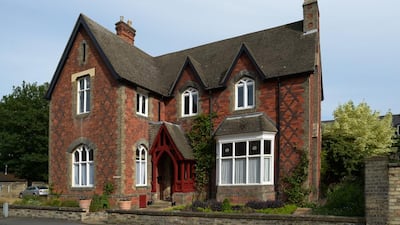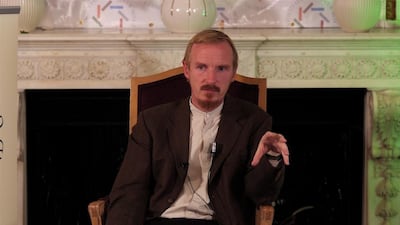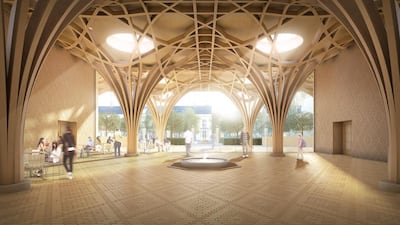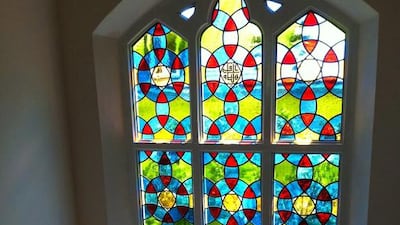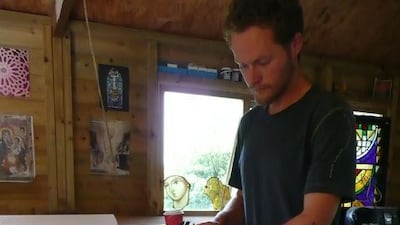The dean of Cambridge Muslim College, Sheikh Abdal Hakim Murad, has built an institution at Unity House that is intensely British and Muslim, offering Islamic Studies students total immersion in the renowned university.
The architectural equivalent of a priest’s collar, hymn book and afternoon tea, the early Victorian building that occupies 14 St Paul’s Road appears to be Anglicanism personified, as much a part of Cambridge’s heritage as its colleges, quads and gowns.
A closer inspection, however, reveals that not everything is quite as it seems in Unity House.
Since 2011, the 168-year-old building has served as the headquarters of the Cambridge Muslim College (CMC), a charity dedicated to training the next generation of the UK’s Islamic scholars, imams and religious leaders while enabling them to navigate the challenges, complexities and contradictions of life in one of the world’s most secular societies.
The college is part think tank, part seminary, part finishing school – created by its dean, Timothy Winter. The 54-year-old academic, writer and theologian is a Muslim convert known to his colleagues as Sheikh Abdal Hakim Murad.
“The question of how Muslims relate to modern reality and to western reality is one of the topics of the age, not just for Muslims but for their neighbours as well,” Mr Murad says.
“What’s clear is that institutions need to be evolved where that interface can be explored as something exciting, creative and mutually enriching rather than just being a form of grudging mutual accommodation, which has been the model to date.”
Murad, the author of The Cambridge Guide to Classical Islamic Theology, which he describes as “a sort of high-level manual of traditional Muslim belief”, is the only Muslim to have taught divinity at the University of Cambridge in its 800-year history. He is the Sheikh Zayed lecturer of Islamic Studies and director of studies in divinity at Wolfson College, and often described as one of the most influential members of his faith in the UK.
The Royal Islamic Strategic Studies Centre (RISSC), at the Jordanian Royal Aal Al-Bayt Institute for Islamic Thought in Amman, described Mr Murad as “one of the most well-respected western theologians” whose “accomplishments place him among the most significant Muslims in the world”.
As well as being the secretary of the Muslim Academic Trust, Mr Murad is also director of The Anglo-Muslim Fellowship for Eastern Europe and director of the Sunna Project, which has published some of the most respected versions of the major Sunni hadith collections, the most important texts in Islam after the Quran.
“The substantial presence of believing Muslim communities in the heart of Europe is the most exciting religious development that Europe has seen since the Reformation,” he explains.
“In many European cities, there are already more practising Muslims than Christians, and it is evident that to develop a leadership and a religious discourse that can make the most of that opportunity, there need to be cutting-edge institutions that can be academically rigorous and explore ways in which that relationship can be made fruitful and mutually beneficial.”
Murad’s analysis of the opportunities afforded by the dynamism inherent in Muslim demographics is supported by several recent reports.
Last month, The Future of Religions, a Pew Research Centre report, predicted that Europe’s Muslim population will increase from less than 6 per cent (43 million people) in 2010 to more than 10 per cent (71 million people) by 2050. And research conducted by the Muslim Council of Great Britain showed that not only had the Muslim population in England and Wales almost doubled between 2001 and 2011 but that it was growing faster than the general population.
The CMC has attempted to position itself at the forefront of this demographic and cultural shift by funding full-time and associate research fellowships, as well as recruiting 20 students each year to study on its diploma course.
“Many of our students come from existing Muslim seminaries, of which there are about 30, mostly in the north of England and which follow a generally subcontinental, traditional syllabus,” Mr Murad says. “We take the best of them through a careful process of selection, interview, exams, and then we give them one year’s total immersion in the world of Cambridge.
“The basic criterion is that they have to have a commitment to furthering the interests of the Muslim community in the UK and they have to have a very strong background in classical Islamic studies. Otherwise, gender, ethnicity, age are not considerations.
“They learn about western philosophy, they learn about other religions, we take them to the Vatican and they meet the Pope, they meet rabbis for the first time, they learn about western art, British constitutional history and so forth, not with a view to praising it all, but simply so they know what it is.
“At the end of that we hope that they have a better sense, based on their own loyalties and their love of their own institutions and teachers, of what it is to be at that exciting cutting edge of being both British and Muslim.”
Ghulam Moyhuddin, the Pakistan-born head imam of the Ashton Central Mosque in Ashton-under-Lyne, Greater Manchester, is a case in point. Moyhuddin, 29, is a graduate of Al Azhar University in Cairo as well as religious schools in Pakistan and the Jamia Al-Karam seminary in Nottingham. He is the son and grandson of muftis from Pakistan.
Moyhuddin studied at the Cambridge Muslim College between 2011 and 2012.
“Seeing Islam from a very different perspective, through a very English lens, was quite refreshing. It made me realise that Islam isn’t just the heritage of the Indians, or the Pakistanis or even of the Arabs,” the imam explains. “Whether you are in Al Azhar, in Pakistan or in a seminary here in the UK, all of the things you learn and the way you are taught have a set method but until you graduate and face the real world you don’t realise that the practice of Islam is very different from the theory.
“You can’t really connect with people in the UK without understanding their history, their background, the things that have happened in British society that have made them the way they are. Now I can appreciate what people are saying and doing and not just necessarily reject things that aren’t Islamic. I feel like I can integrate more and fit in more with society here,” Moyhuddin says.
“Without the CMC I think I would have just been another traditional imam doing the standard things whereas now I am able to make Islam fun for youngsters, for the newer generations, not by changing anything or breaking any rules but by showing the flexibility that there has always been within the religion.”
Abdal Hakim Murad is the son of an architect and an artist and the elder brother of the Daily Telegraph’s football correspondent Henry Winter. He converted to Islam 40 years ago, adopting a position that is founded on classical Islamic teaching but which embodies a kind of hybridity that Mr Murad describes as a “cultural amphibiousness”.
It’s a concept that goes to the very heart of Mr Murad’s work at the university as well as at the CMC.
“Everybody now wants to know what religion is, where it comes from, where it might go next, how it engvages with the modern world, what it says about evolution, what it says about stem cell research, what it says about fundamentalism versus democracy,” the academic explains. “These are enormously live issues and if they can’t be studied rigorously in a university environment where can they be studied?”
Alongside his plans to establish a permanent endowment for a larger seminary that would enable more than 100 students to read Islamic studies at degree level, Mr Murad’s other main project is the Cambridge Mosque, a state-of-the-art facility for the city’s rapidly growing Muslim population.
“We do not have a single, purpose-built mosque that people can visit on a Friday,” he says. “At the moment they have to content themselves with borrowed spaces or with the one or two hastily converted former nonconformist chapels that are now bursting at the seams. Last Friday, many people had to pray in the street because there wasn’t enough room inside.”
Thanks to financial assistance from donors in Abu Dhabi, a plot of land has already been secured for the mosque and other donations have already raised £6.5 million (Dh37.5m) of the £12m that is required to complete the project. The mosque, designed to accommodate 1,000, was the subject of an international architectural competition. The winning scheme was selected from Marks Barfield Architects, the design team responsible for the London Eye, and Prof Keith Critchlow of the Prince of Wales’ School of Traditional Arts (STA) in London, one of the world’s foremost experts on Islamic and sacred architecture and geometry.
In addition to its dedicated ablutions, teaching and children’s areas, the mosque will have meeting rooms, a morgue, a cafe and a community garden designed by Emma Clark, a specialist designer of Islamic gardens who also teaches at the STA.
Given its location in a quiet residential area of Cambridge, and its mission, Mr Murad hopes that the mosque will become an integral part of the town’s local and religious community by being both unmistakably Islamic and British.
The idea behind the mosque, the academic explains, is to create something more than “just be a place to keep local Muslims out of the rain” that will act as “a showcase for Arab-Islamic civilisation and the way in which that has historically influenced the West. It also hopes to be in a positive constructive relationship with the West in this city that is Cambridge.
“It doesn’t make a lot of sense to call Islam an oriental religion any longer. We have mosques here in Cambridge now and half the taxi drivers in Cambridge are Muslim,” Mr Murad says. “What does it mean to say that Islam is an Oriental religion? It’s part of Western reality now.”
nleech@thenational.ae
